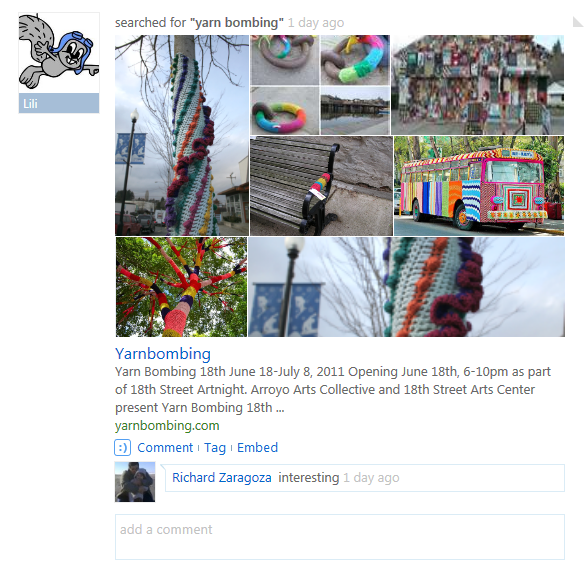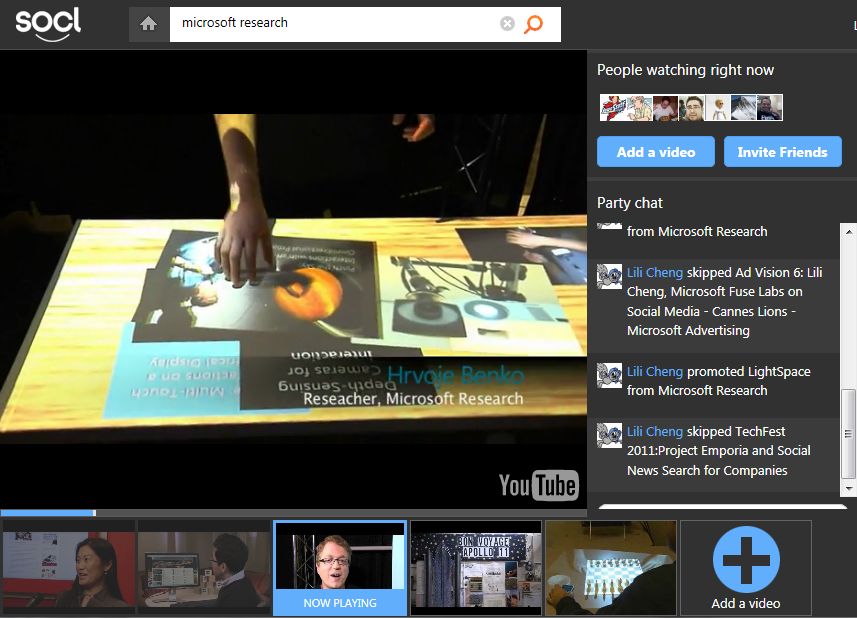Microsoft is officially launching So.cl, the social networking service it teased back in July. And it turns out, it’s not meant to be Microsoft’s version of Facebook, but a social networking service for students built on top of Facebook. The service is launching out of Microsoft Research’s FUSE Labs division, and is still being dubbed “experimental.”
Today, students at the the University of Washington, Syracuse University, and New York University are being allowed to use the service, with other schools being added in the future.
According to a post on Microsoft Research, So.cl has been designed for students studying social media “to extend their educational experience and rethink how they learn and communicate,” which, indeed, sounds very experimental. Students are able to post photos, video and text and share those posts with others. They also can seek out students with similar interests and build communities around specific educational goals.
Users can follow people, set up feeds and search (powered by Bing). Search results can be shared with others, in an effort to make the most searched content go viral. So.cl also builds on the content-aggregation project Montage that enables authoring of a visual collage of images, videos, and stories. In So.cl, users can quickly assemble content from a variety of sources to build pages about particular interests.
The “connecting around interests” path that So.cl is taking makes sense. Interest-based social networking is an emerging trend seen in a number of social startups these days. Companies believe that the only way to compete with Facebook is to develop a service that connects you with people you don’t know, but would want to know, instead of with real-world friends, as Facebook does. Most startups, however, attempt to start from scratch, asking you to sign up and join their own standalone destination website. So.cl, meanwhile, simply asks you to “sign in” with Facebook. It’s essentially a Facebook app.
Unfortunately, if you attempt to sign in yourself, So.cl reports being “over capacity.”
In November, several screenshots of the network leaked, which showed a network focused on collaborative consumption, not communication. It had video-sharing, for example, but you chatted with others watching the video with you through a chatroom, not via direct messages with the other person. Now we know that Microsoft is calling this feature a “video party,” where students get together to watch videos on the network.
This focus on interest-based networking was by design. This is not Microsoft’s version of Facebook. Says Lili Cheng, general manager of FUSE Labs, “we expect people to continue using their favorite social network and search tools,” (in other words, Facebook), “and we hope that, by experimenting with how search and social networking can be combined, more people experiment with tools we already take for granted.”


